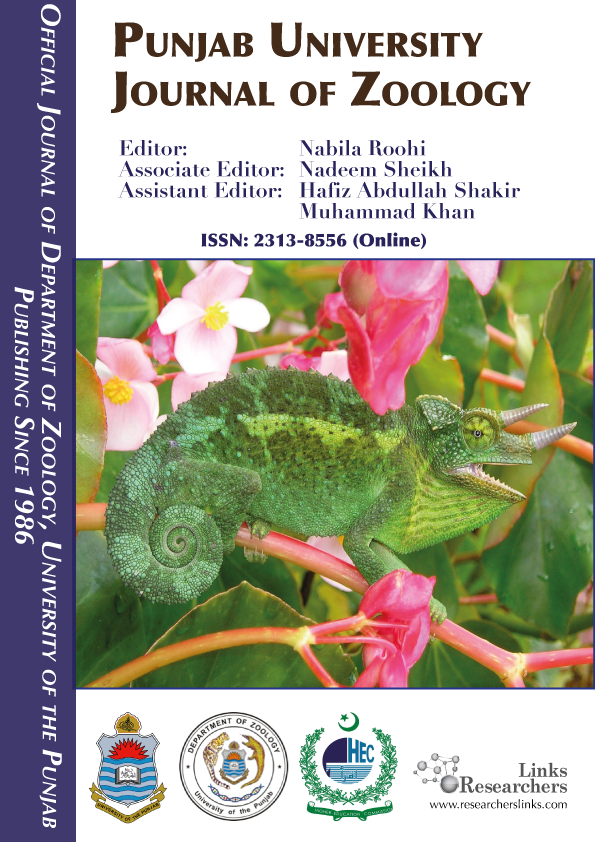Abstract | Levofloxacin (LFX), a broad spectrum fluoroquinolone antibiotic of third generation, is widely used to treat respiratory and genitourinary infections. Keeping in view the controversy about its toxicity, current study was conducted to assess the levofloxacin induced hepatotoxicity, nephrotoxicity and its likely noxious effects on spermatogenesis in mammals. Forty mice, randomly categorized into four groups (N=10) were administered orally with different concentrations of levofloxacin (0.00, 9.37, 18.75 and 37.50µg/g BW of mice) for 30 days consecutively. Mice were sacrificed on 31st day (24 hours after last dose administered) under deep chloroform anaesthesia. Blood was extracted through cardiac puncture and viscera were dissected out for further analysis. Levofloxacin induced reduction in body weight while caused a noticeable increase in liver, kidney and testis weights. Significant increase in levels of total alkaline aminotransferase (ALT), aspartate transaminase (AST), alkaline phosphatase (ALP) and bilirubin was observed in blood plasma. Urea level showed a remarkable decrease, whereas creatinine level increased but not significantly. Histological examinations exhibited pyknosis, necrosis, vacuolations, increased sinusoidal spaces, karyomegaly, glomerulosclerosis, glomerulonephritis, epithelium degeneration, spermatocytes exfoliation, tubular degeneration and aspermia in liver, kidney and testis respectively. Levofloxacin causes deleterious effects on liver, kidneys and testes of mice and alters normal functioning of vital organs.
Novelty Statement | The research highlighted safe and toxic dose limits of Levofloxacin, (a broad spectrum antibiotic) on repeated exposure to mammals








